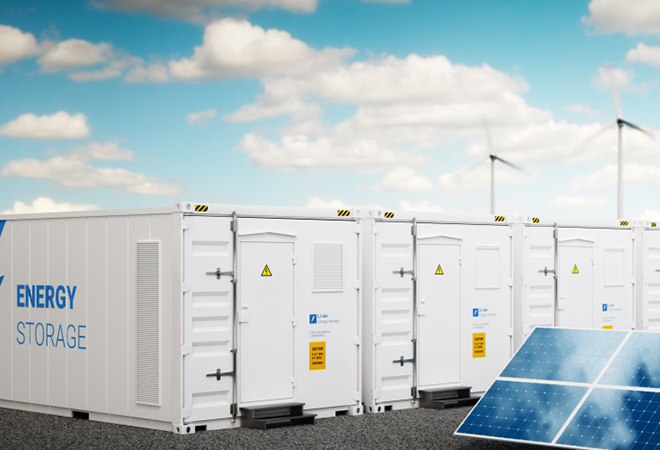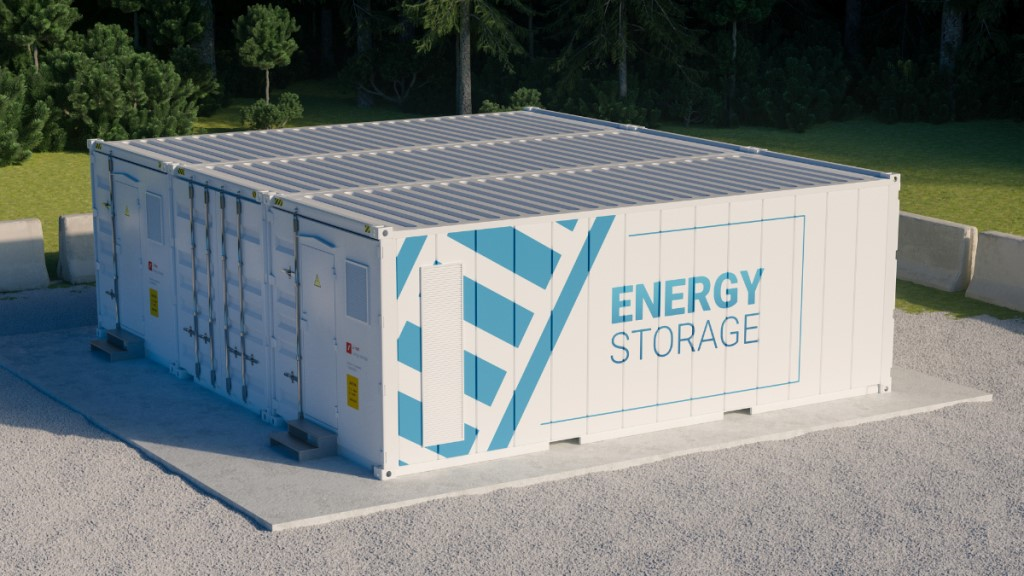Battery Energy Storage Systems (BESS) are used in India for various purposes, including grid stabilization, renewable energy integration, peak demand management, and backup power. They help in smoothing the variability of renewable energy sources like solar and wind, reducing reliance on fossil fuels, and improving grid reliability.

Renewable-Energy-Resource (BESS)

Battery Energy Storage System (BESS)
Battery Energy Storage Systems (BESS) are used in India for various purposes, including grid stabilization, renewable energy integration, peak demand management, and backup power. They help in smoothing the variability of renewable energy sources like solar and wind, reducing reliance on fossil fuels, and improving grid reliability.
GoI Guidelines/Several measures in the renewable energy sector (BESS) such as :-
- Ministry of Power (MoP) has issued “Guidelines for Tariff Based Competitive Bidding Process for Procurement of Firm and Dispatchable Power from Grid Connected Renewable Energy Power Projects with Energy Storage Systems” vide Gazette Resolution dated 09.06.2023.
- Ministry of Power (MoP) has issued "National Framework for Promoting Energy Storage Systems" dated August 2023, to have 24 x 7 dispatchable RE power.
- As per MoP order dated 22.07.2022, the Energy Storage Obligation (ESO) of obligated entities shall gradually increase from 1% in FY 2023-24 to 4% by FY 2029-30. The renewable power purchased from an ESS shall also qualify for RPO compliance.
- As per MoP order dated 11.03.2022, Guidelines for Procurement and Utilization of BESS as part of Generation, Transmission, and Distribution assets
- Waiver of transmission charges for BESS project, these, coupled with historic lows in BESS discovered tariffs have completely transformed business dynamics in the sector.
Further, the Renewable Purchase Obligations (RPOs)/Energy Storage Obligation (ESO) trajectories set by Government of India is likely to enhance the opportunity for capacity growth in renewable energy space.
About REMCL
REMC Ltd is the Nodal agency for planning, tendering / bid processing and implementation of RE projects on behalf of IR. The variability caused due to integration of renewable energy into the grid has opened up many opportunities for possible energy solutions under the umbrella of ancillary services, such as battery energy storage, round the clock power using 100% renewable power efficient ramping up and down of thermal generating units etc. The cumulative capacity of Standalone BESS & Solar power with BESS under consideration by REMCL are approximately 450 MW/1800 MWH and 17 MW Solar Power with 12.5 MW/50 MWh BESS respectively.
- Standalone Battery Energy Storage Project
Status of ongoing projects are as under:
i) Standalone Battery Energy Storage Solutions (BESS) in Developer Mode for peak power management using Solar Power of BSUL & IRPL project.
Indian Railway has tie-up for sourcing of solar power through CTU connected Mega Solar Parks viz 500 MW from IRPL and 400 MW from BSUL. While 300 MW of solar power from 500 MW capacity of IRPL has already been made operational and construction of BSUL project about to take off and solar power from BSUL is likely to be available in next two years. In the above context, it is proposed to set up BESS of 200/800 MWh capacity utilizing Solar power of BSUL & 250/1000 MWh capacity utilizing Solar Power of IRPL respectively for charging during Solar Hours and 4 hrs discharging during peak load hours i.e. between 18:00 to 24:00 hrs.
ii) Setting up of land based Solar plant with Battery Energy Storage Solutions (BESS) at Dahod for IR’s Traction Power Requirement. The vacant Railway land parcel of 75 Acres near Filter Plant at Dahod (Gujarat) can be used for the said purpose. The proposal is prepared based on the peak time power requirement basis in which BESS is charged in non-peak hours and it will discharge for 04:00 hrs in peak hours between 18:00 to 24:00 hrs as per railway requirements.
